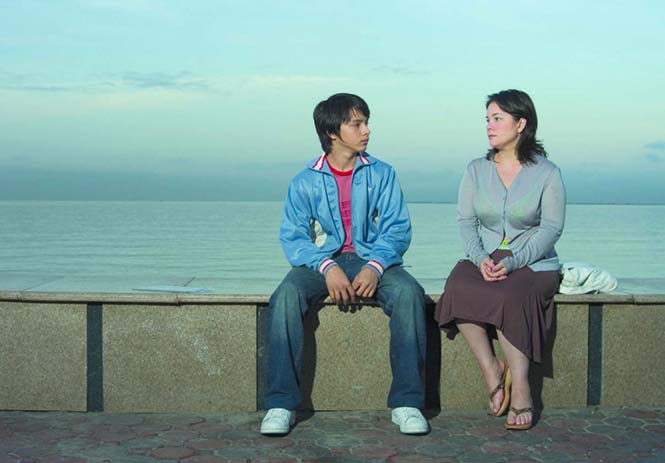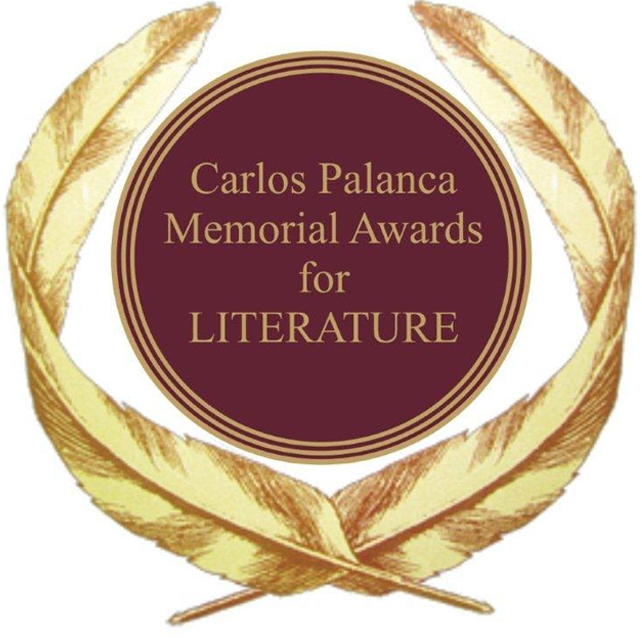The annual ceremony of the Carlos Palanca Memorial Awards for Literature featured performances of select pieces honored with the award. For its 66th year, one of the presentations showcased an excerpt from the grand prize-winning full-length play “The Floret Road” by seven-time Palanca awardee Dr. Joachim Emilio B. Antonio.

Noel Rayos gives an enthralling performance as Jose Rizal/Pepe, whose epistolary correspondences with his friends, family, and ladyloves give life to Dr. Joachim Emilio Antonio’s Palanca Award-winning play “The Floret Road.”
“The Floret Road” is set in the 19th century, a time when long-distance communication relied heavily on letter exchanges, the pace of which is nothing millennials could probably ever comprehend or believe. This understandably put strain on relationships, including that of national hero Jose Rizal and his then ladylove, Leonor Rivera. Adding to that was the opposition of Leonor’s mother to this romance. Told in reverse chronology, the play begins with Rizal’s deep grief at the end of their relationship before going back in history to explore the nature of his attachment to Leonor.
“A vague melancholy consumes me. I fear I’m going to be one traveling down a floret road, passing by without touching any of the flowers there, in the hope of finding something uncertain. The road then becomes dry, bare, and I look into the past with regret,” the play reads.
On the Palanca stage, it was brought to life by Noel Rayos as Pepe, depicted from age 16 in 1877 to age 30 in 1891, and Annicka Dolonius as Taimis, the code Rizal gave to Rivera. Dolonius also played the other women romantically linked to Rizal, namely, Suzanne Jacoby, Nellie Boustead, Seiko Usui, and Tottie Beckett. Joining them were Matthew Barbers, who represented Everyjuan, and Cara Barredo as Everymaria. Everyjuan raised questions and speculations in the gaps of history while Everymaria fills in the facts and necessary context. Barbers also played Rizal’s friend correspondents Ferdinand Blumentritt, Antonio Regidor, and Jose “Chenggoy” Cecilio while Barredo also played Narcisa Rizal, Pepe’s sister. At the directorial helm was Mr. Bart T. Guingona, with Ms. Mara Agleham as stage manager.
Dr. Antonio revealed that he found the inspiration to write “The Floret Road” when he stumbled upon a letter Rizal wrote to his sister Soledad. In this letter, Rizal was advising her to conduct her relationships honorably, instead of keeping it secret.
“It’s in this letter where I found my seed of inspiration: ‘Though I do not set myself as a model, all my relationships with women have been acted upon honorably.’ This struck me, as this went contrary to the popular Rizal playboy image,” Dr. Antonio said.
Moreover, after his initial research, Dr. Antonio found Leonor as the most fascinating among the women linked to the national hero. After all, Rizal underwent an emotional breakdown when they broke up.
“The Floret Road” is Dr. Antonio’s second historical play, following the 2014 Palanca Award-winning piece, “The Last Filipino.” As of press time, there are plans to stage an abridged version of “The Floret Road” next year at the University of Asia and the Pacific, where Dr. Antonio is currently teaching Literature. He also hopes to be able to tour performances in schools and museums given the play’s mobile design.
On finding stories
When asked how he comes up with unique ideas to write about, Dr. Antonio quotes the Nobel Prize laureate William Faulkner who said that, “A writer needs three things, experience, observation, and imagination ─ any two of which, at times any one of which ─ can supply the lack of the others.”
“Of the three, I believe that observation is most important. In fact, it’s indispensable. Without observation, experience becomes inevitably shallow and imagination becomes impossible to fuel. But it’s still the combination of the three that generates unique ideas: experience will tell you what has been done, observation will tell you what hasn’t been done yet, and imagination will tell you what can still be done,” Dr. Antonio said.
“I think uniqueness isn’t enough for a story to be written. What’s more important is that the story is worth telling, that it’s something readers would care to read about. Human-like characters and consequential situations make readers look into their own humanity,” he added.
Award-winning advice
Even with seven Palanca awards under his belt now, Dr. Antonio believes that the more important reward the Palanca provides writers is the opportunity to develop discipline, high standards, and professionalism.
“Beating the April 30 deadline and following the meticulous rules is good for the writing discipline. Prepare your entries as early as May 1 and finalize them by March,” he said.
While winning is a good thing, losing, for him, does not necessarily mean that one’s work isn’t any good. Perhaps, there are just others as passionate about writing.
“Don’t join to win; join to beat the deadline and to give potential winners a run for their money. Join multiple categories and divisions every year. If you do, the worst thing that will happen is that you’ve been able to complete written works. And that’s always a good thing,” Dr. Antonio concluded.






















































































